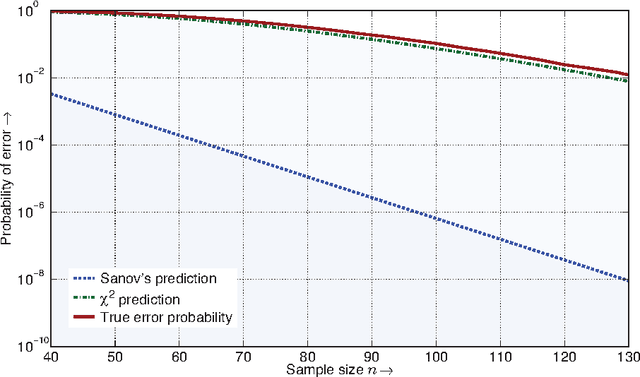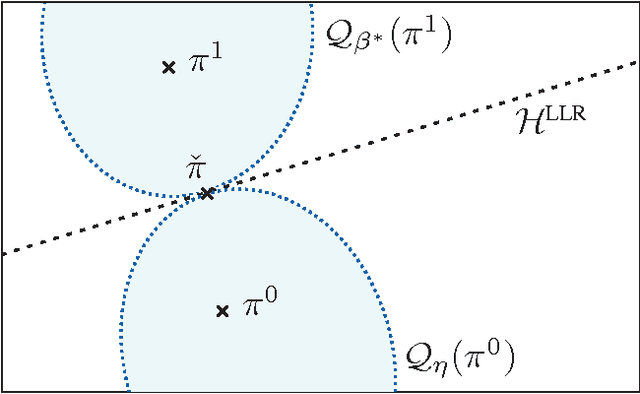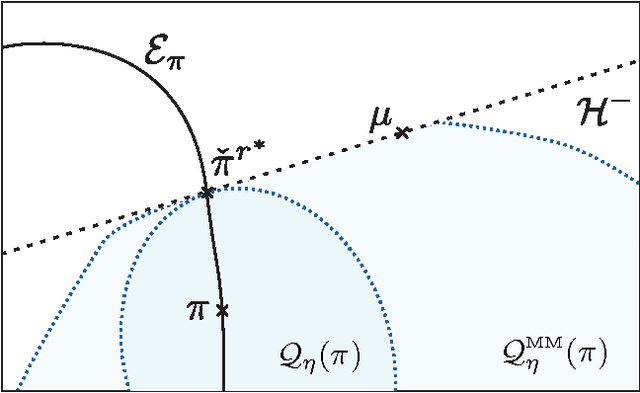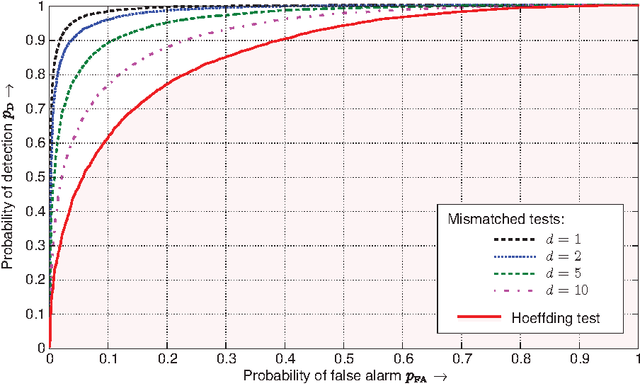Universal and Composite Hypothesis Testing via Mismatched Divergence
Paper and Code
Sep 09, 2010



For the universal hypothesis testing problem, where the goal is to decide between the known null hypothesis distribution and some other unknown distribution, Hoeffding proposed a universal test in the nineteen sixties. Hoeffding's universal test statistic can be written in terms of Kullback-Leibler (K-L) divergence between the empirical distribution of the observations and the null hypothesis distribution. In this paper a modification of Hoeffding's test is considered based on a relaxation of the K-L divergence test statistic, referred to as the mismatched divergence. The resulting mismatched test is shown to be a generalized likelihood-ratio test (GLRT) for the case where the alternate distribution lies in a parametric family of the distributions characterized by a finite dimensional parameter, i.e., it is a solution to the corresponding composite hypothesis testing problem. For certain choices of the alternate distribution, it is shown that both the Hoeffding test and the mismatched test have the same asymptotic performance in terms of error exponents. A consequence of this result is that the GLRT is optimal in differentiating a particular distribution from others in an exponential family. It is also shown that the mismatched test has a significant advantage over the Hoeffding test in terms of finite sample size performance. This advantage is due to the difference in the asymptotic variances of the two test statistics under the null hypothesis. In particular, the variance of the K-L divergence grows linearly with the alphabet size, making the test impractical for applications involving large alphabet distributions. The variance of the mismatched divergence on the other hand grows linearly with the dimension of the parameter space, and can hence be controlled through a prudent choice of the function class defining the mismatched divergence.
 Add to Chrome
Add to Chrome Add to Firefox
Add to Firefox Add to Edge
Add to Edge